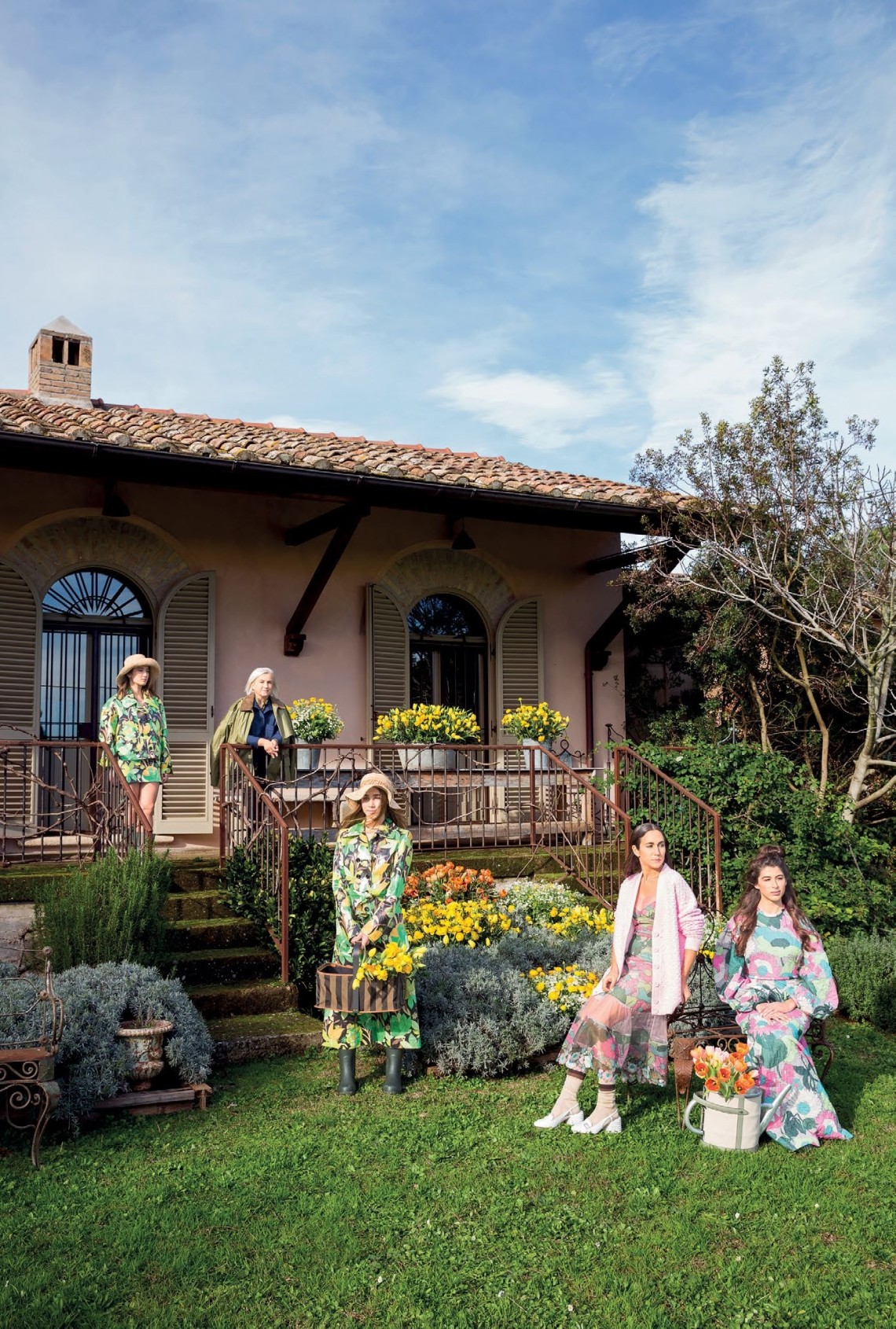Silvia Venturini Fendi’s family country retreat represents a confluence of the Italian house’s timeless savoir faire and the designer’s own eye on the future.


Set at the end of a long drive flanked by centuries-old stone pines twisting crookedly up to the heavens, I Casali del Pino, the Fendi family’s country estate outside of Rome, evokes a 19-century Italian landscape painting. Just 9.7km north-west of the Colosseum, the property predates the Roman Empire, and the family’s transformation of roughly 174 hectares of land into an organic farm adds to that sense of longevity.
It’s here that Fendi’s creative director, Silvia Venturini Fendi, spends weekends with her sisters, Ilaria—who runs the farm’s operations—and Maria Teresa, and all of their children. “For me, it’s really a way of resetting from city life and working in fashion, which is very demanding,” Venturini Fendi says with characteristic understatement. Encompassing a terracotta farmhouse with pretty eau-de-Nil shutters, a dairy, an agritourism hotel with 16 rooms, an organic restaurant and a flock of more than 1,000 sheep, I Casali del Pino isn’t pastoral posturing. “We bought this property for our children because we really believe the future will be about having a greener life,” she continues. “Ilaria has been an environmental activist for many years, and now we’re all learning to live in a simpler way.”
Venturini Fendi’s nine-to-five is far from simple. After nearly three decades working at Fendi (she famously designed the iconic Baguette bag back in 1997), she was named sole creative director last year following the death of Karl Lagerfeld, who had designed for the House for more than 50 years. The approach she is taking to this new chapter is deeply rooted in her own heritage. “I don’t have this idea of woman as goddess,” she says of her spring collection, which features a mix of work jackets, trenches and quilted coats in pastels, tans and ochres, and dresses in checked prints and bright psychedelic florals. “My inspiration is much more grounded. I want to talk to real women who work—like the women in my own family.” Her mother, Anna, was one of five sisters who inherited a small leather goods workshop and together transformed it into a global luxury powerhouse. Along with her commitment to real-life wardrobe solutions, Venturini Fendi is adamant that her designs align with her sustainable ethos: “Karl taught me that time is the best judge of creativity. I want to make clothes that people wear throughout their lives.”
It’s the next generation of Fendi women, pictured here, who most inspire her. “My daughters and nieces are all extremely stylish as they’ve been raised to believe an aesthetic point of view has real value,” Venturini Fendi says, smiling. “My older daughter, Delfina [Delettrez Fendi], is a jewellery designer, while my youngest, Leonetta [Luciano Fendi], is studying human migration at the London School of Economics. My niece Nina [Pons Fendi] is an actress and Annabel [Frisch Fendi], my youngest niece, rides horses beautifully.” Might this, then, be a preview of the fourth gen of the family business? “Like all the women in my family, what they do will be their choice,” she replies.
Whatever the future holds, it’s clear that I Casali del Pino will remain an anchor for the Fendis. “This place reassures me,” Delettrez Fendi says. Adds Venturini Fendi: “It’s a lot of manual work—opening up paths in the woods, following the river and finding mysteries from the past. Every time I go back home on Sunday night, I am destroyed but also so happy.”




From above: Venturini Fendi with her daughters and nieces in the terrace garden. Reclaimed and upcycled tiles and cabinetry in the kitchen OPPOSITE: The next generation of Fendi women, with a pair of lambs born that day: (from left) Leonetta Luciano Fendi, Nina Pons Fendi, Annabel Frisch Fendi, and Delfina Delettrez Fendi

— Silvia Venturini Fendi"
Photographed by Filippo Bamberghi























